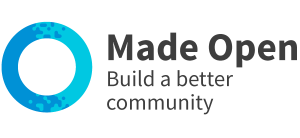Case Study: Innovative Fall Prevention and Housing Adaptations for Older Adults
Background: Teignbridge District Council allocated £890,000 annually for housing adaptations to support individuals with poor mobility. Facing rising demand for housing services and limited financial resources, the Council partnered with The Design Council and Made Open to test innovative solutions aimed at preventing falls and improving home safety for older adults, ultimately reducing the need for costly interventions.
Challenge: The core challenge was to find effective ways to prevent older adults from falling in their homes, addressing gaps in the system, and reducing the need for expensive interventions by improving fall prevention and home safety measures.
Approach: Made Open utilised a user-centred, design-led approach to identify systemic inefficiencies and explore innovative, collaborative solutions. The project involved a series of research phases to gather insights from multiple stakeholders, including older adults, health and housing professionals, and social care services.
Design Process:
- Interviews: Interviews were conducted with older individuals who had experienced falls. Their insights, captured in short videos, helped to map out their experiences and ideas for fall prevention.
- Mapping Falls Pathways: Workshops with health, housing, and social care representatives identified various service “touch points” and mapped out the fall prevention pathways. Gaps in support services and opportunities for improvement were pinpointed.
- Testing Communication Methods: To improve awareness and engagement, traditional leafleting was replaced with more engaging and interactive campaigns:
- Sound Advice: A vintage record installation that used popular 1960s music to discuss fall prevention.
- Fall Victim: A chalk line “crime scene” installation showcasing stark fall statistics.
- Fall Proof: A fun campaign using bubble wrap to suggest home modifications for fall prevention, linked to a free home check service.
- Prototyping Services: Three service prototypes were developed under the “Fall Proof” initiative:
- Online Photo Submission: Engaged family members to identify hazards in their loved ones’ homes through photos, receiving advice on necessary changes.
- Home Assessment Service: Offered in-person home assessments with tailored reports on reducing fall risks.
- Volunteer Support Pack: Distributed information and training on fall prevention, including home assessment checklists.
- A deeper understanding of the need for systemic changes to support older adults.
- An increase in collaborative working across agencies.
- The application of design principles to other areas within the Council's housing and health departments.
Project Outcomes: The project led to greater collaboration between health, housing, and social care services, enhancing systemic support for vulnerable individuals. Key outcomes included:

